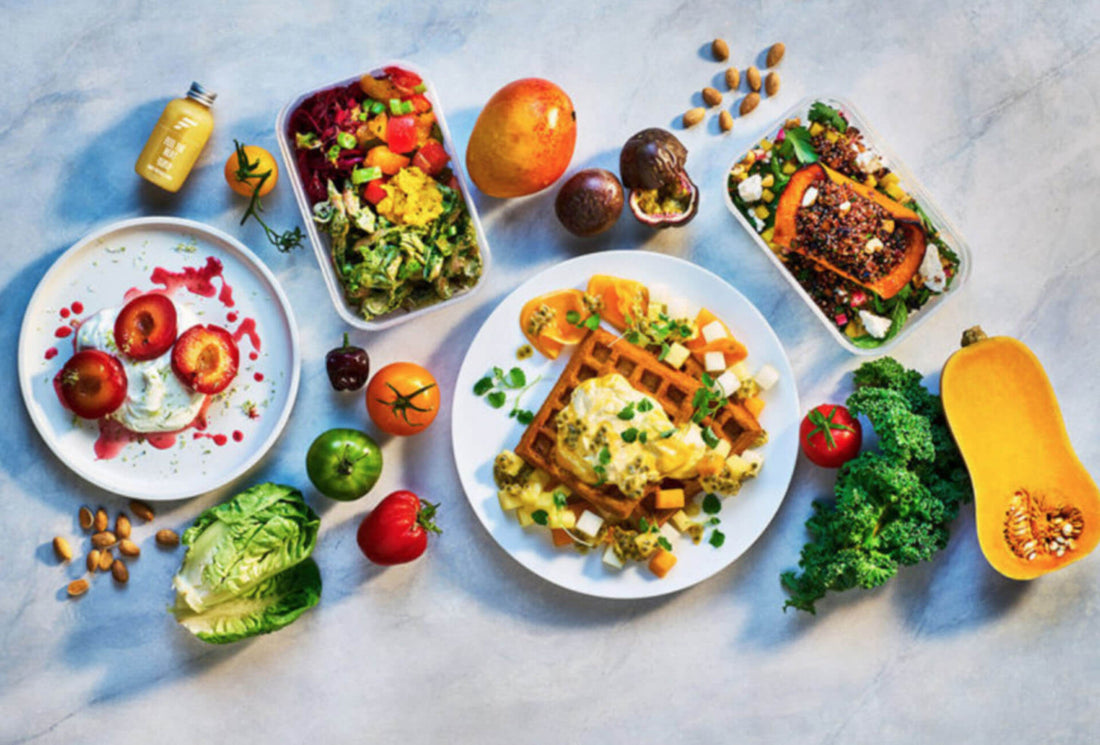Nutrition can be a daunting area to approach for the first time, and often, Google and the internet, in general, is full of contradiction and misinformation. It’s important to choose where you receive your research and information wisely and from credible sources (not just someone with a lot of Instagram followers!).
Fresh Fitness Food’s in-house nutritionists have pulled together some basics on nutrition to get you started!
Calories
A calorie is a unit of energy and is mostly used to describe the amount of energy you could receive from a particular food or drink.
The definition of a calorie is the energy needed to raise the temperature of 1 gram of water through 1°C, which otherwise works out to 4.18400 joules – joules being another form of energy.
Calculating calorie requirements can be tricky, and despite there being a recommended daily intake for men and women, there is no one set amount that everyone should be consuming. Daily intake is hugely dependent on factors such as height, weight, age and activity level.
This is why taller or younger people tend to have a higher recommended calorie requirement than those who are shorter or older, as they require more energy throughout the day the keep their body functioning efficiently.
To make things more confusing, there are several different formulae that can calculate your recommended intake. All formulas initially calculate your basal metabolic rate, also known as BMR. All BMR equations use an individual’s weight, height and age, but these measurements are used differently between equations.
At Fresh Fitness Food, we use the Mifflin St Jeor formula, as this particular formula has been proven to provide the most accurate estimations when compared against indirect calorimetry – which is the method by which measurements of respiratory gas exchange used to estimate calorie expenditure.
The Mifflin St Jeor Formula is as follows:
BMR (kcal / day) = 10 * weight (kg) + 6.25 * height (cm) – 5 * age (y) + s (kcal / day),
Where ‘s’ is +5 for males and -161 for females.
This will calculate BMR, but does not account for any activity an individual partakes in – this must be calculated on top. This can be done by multiplying the outcome of the Mifflin St Jeor equation by one of the following numbers, depending on your activity levels:
- Sedentary = 1.2
- Lightly active = 1.375
- Moderately active = 1.550
- Very active = 1.725
- Extremely active = 1.9
There are many, many factors that can affect metabolism and energy expenditure, but these basics are a good place to start. Further factors to consider include the thermic effect of food (i.e. how much energy your body uses simply from digesting what is consumed), fat-free mass (i.e. muscle), menstrual cycle, age, sex, genetics, body temperature and many more.
Therefore, it is important to acknowledge that these calculations are always estimations. Truly accurate energy expenditure can be measured in a lab environment, but this is not practical for most people!

Macros
Your overall calorie intake is broken down into what are known as macronutrients. There are three main macronutrients – protein, carbohydrates and fat, all of which are used by the body in different ways and provide varying amounts of energy per gram.
Protein and carbohydrates both provide 4 kcal/g, whereas fat is slightly more energy-dense, providing 9 kcal/g.
Protein
Protein is essential for muscle growth and repair, as well as cell generation and maintenance, so it is important to ensure your protein intake is adequate.
For those that partake in regular exercise, particularly if overloading their muscles (i.e. strength training), 1.2-2g protein/kg bodyweight is recommended to ensure muscle recovery on top of the other biochemical processes that occur regardless of exercise.

Carbohydrates
Carbohydrates can often be feared, but they’re the body’s preferred source of energy. When you consume carbohydrates, your body converts the glucose found in the carbohydrates into glycogen – glucose’s storage form.
Glycogen is found mostly in muscle tissue, but can also be found in the liver. When you do not have sufficient adenosine triphosphate (ATP), such as when enduring intense exercise, glycogen stores are broken down to glucose to provide immediate energy and to maintain blood glucose levels during fasting.
As with protein, it is important to replenish your glycogen stores after exercise, particularly if endurance-based. For most people, 5-7g carbohydrates per kg of body weight are sufficient after a workout, but if doing a particularly long session, or intense training for a marathon, for example, you will require more to adequately refuel.
Fresh Fitness Food have a whole blog post dedicated to carbohydrates here if you’re interested!

Fat
There are three main types of fat – mono- and polyunsaturated fats (i.e. “healthy” fats), and saturated fats (i.e. “unhealthy” fats).
Mono- and polyunsaturated fats help the body to absorb vitamins A, D and E. These vitamins are fat-soluble, which means they can only be absorbed with aid from fats before they can be used by the body.
Saturated fats, on the other hand, work to increase the amount of cholesterol in the blood, which FFF also have a post on here. Saturated fats are found in foods such as red meat, dairy, cakes and baked goods – generally more ‘processed foods’, but also coconut and its products (e.g. coconut oil)
Ideally, everyone should limit saturated fat intake where possible, and try and to include mono- and polyunsaturated fats as alternatives to promote vitamin absorption and reduce cholesterol synthesis.
Fresh Fitness Food specialises in bespoke nutrition that is tailored to your individual needs. If you’re stuck on how to proceed with your nutrition, book in a call with one of their nutritionists here. If you’d like to make eating healthy that bit easier, you can try FFF out with £50 off their 5-day trial with code PURESPORT50.

